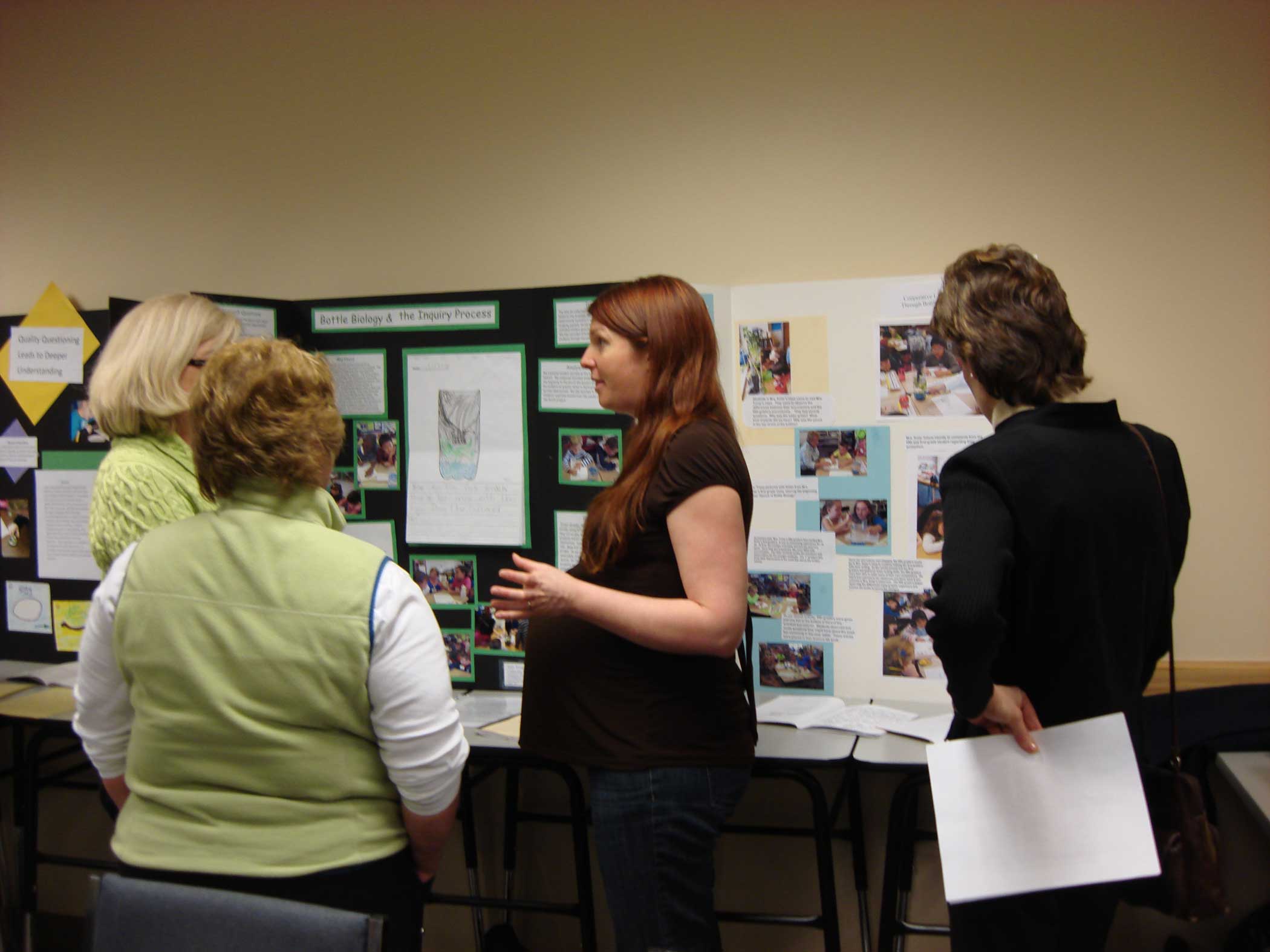
Professional Development for Teachers
| Mission
Our mission is to support teachers in engaging students in authentic scientific inquiry and sense-making - making self-directed explorations and observation of natural phenomena, finding questions to explore, devising ways of gathering, organizing and displaying data - and create a community of science learners in the classroom.
Inquiry-based teaching and learning engages both students and teachers as researchers of natural phenomena. Students explore and research materials and scientific phenomena their teachers present to them. Students gain knowledge and understanding of scientific phenomena and develop the practices and habits of mind of contemporary scientists as they make self-directed explorations, doing what scientist do (observing, classifying, modeling, experimenting). Teachers explore and research their students' self-directed science learning. Teachers become facilitators of learning and knowing rather than transmitters of information. Students and teachers are observers, questioners, explorer, inquirers, data gatherers, thinkers, sense-makers, imaginers, innovators, inventers, creators, collaborators, communicators. Classrooms are transformed into places of deep learning as students and teachers work together, co-constructing knowledge, as a scientific learning community. Such environments of deep learning nurture the ways of thinking and interacting necessary for successful engagement with a rapidly changing, increasingly diverse unknowable and unpredictable world. |
Learning by Exploring
Exploring How We Learn
A Powerful Combination!
|
Through following students' explorations, teachers deepen their knowledge of the subject matter, their understanding of student thinking, and their structuring of the subject matter to open the world to students. Students deepen their understanding of the world by self-exploring natural phenomena appropriately guided along their path by teachers. The relationship is inter-dependent as explorations of one, widens and opens the world/understanding of the other. |
| The Benefits of Learning Explorations Research into inquiry-based learning has revealed several important benefits and outcomes:
Why Inquiry-Based Learning and Teaching?Today's students live, learn and work in a world characterized by increasing diversity and social, economic, and environmental issues that they did not cause but which are theirs to solve. Accelerating technological advances make the world even more complex. Jobs of the future are unknowable and unpredictable. "In many industries and countries, the most in-demand occupations or specialties did not exist 10 or even five years ago."1 A subsequent 2018 report projected "workers lacking appropriate skills . . . may see their wages and job quality suppressed by technology steadily eroding the value of their job, as it encroaches on the tasks required to perform it."2 To flourish in twenty-first century life and work and adapt to an ever-changing landscape requires competencies in the areas of creativity, critical thinking, collaboration, communication and complex problem-solving.3 Helping teachers to design experiences that develop the "twenty-first century competencies" and thus enable "deeper learning" for all students is the instructional challenge for schools and it is a matter of equity and justice for students.4 Fortunately, inquiry-based learning and other learner-centered pedagogies have proved productive in this area. Introducing inquiry into the science classroom is especially valuable. By learning science through inquiry, students become scientists as they explore scientific phenomena and engage in the practices of science.
|
Students who experience inquiry learning and engage in learning explorations have improved attitudes toward science, improved abilities to utilize science practices and processes to identify and explain physical phenomena, and develop a better understanding of science concepts. (Hover on the heading for more information.) Given these benefits, we propose professional development in five (5) areas which we consider a foundation for learning to engage students in learning explorations (inquiry learning).
|
We are a scientist and science educator. We share a commitment to inquiry of the natural world as an instructional approach to attract, retain, and educate k-12 students in science. In our work with teachers, we utilize inquiry to enhance teachers' knowledge of scientific phenomena and develop their skills to engage k-12 students in inquiry learning experiences that reflect what scientists do. Contact us to start making science fun again and to engage your teachers in strategies where both they and their students will better understand how we learn and the principles that govern our world. See our StudentWorldTeacher site for more information about the work that we have done together. Dr. Fiona Hughes-McDonnell, Ed.D. | Dr. David Burgess, Ph.D. |